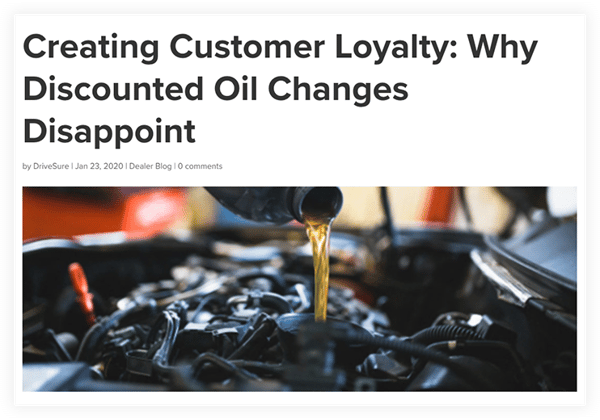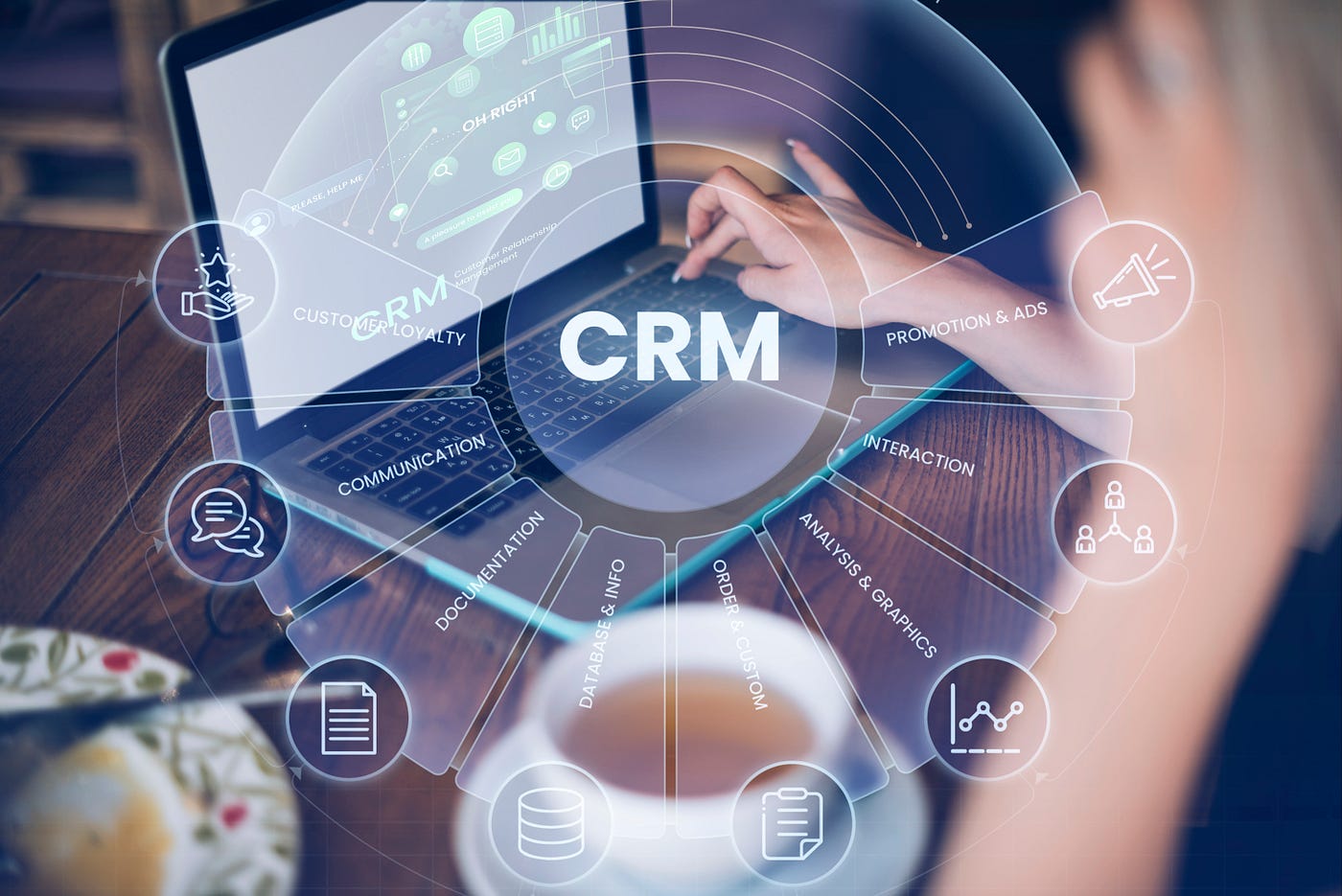3 Strategies for Dealing with Procrastination

CURT NICKISCH: Welcome to the HBR IdeaCast from Harvard Small business Evaluate. I’m Curt Nickisch.
You do not have to be a member of Procrastinators Nameless to value how paralyzing procrastination can be. And yes, there is this sort of a group. They phone procrastination the grave the place option is buried.
We’re all inclined to it. We all experience responsible about it. And nevertheless we even now do it. For numerous of us, it’s a tough habit to break. A ton of the emphasis on beating procrastination has been on routine forming and self-discipline, and finding the gumption to facial area the tasks you never like performing. But if it have been that very simple, it wouldn’t be a challenge any longer.
Our visitor right now delivers 3 strategic paths to defeat procrastination in a comprehensive way. Practices, emotions, and imagined designs. And she’s below to lay these out for us. Alice Boyes is a previous clinical psychologist and the creator of the book Worry Cost-free Productivity. She also wrote the HBR report, “How to Halt Procrastinating. Alice, thanks for being here”
ALICE BOYES: Thank you for getting me.
CURT NICKISCH: What’s your knowledge of procrastination? What reason does it serve?
ALICE BOYES: Yeah, so it is quite difficult. I assume that it is usually aspect of the creative course of action that often we procrastinate for the reason that we’re executing anything challenging. Often we need to have that incubation time period. So loads of types of trouble fixing advantage from an incubation interval the place you consider a pause amongst when you listen to the difficulty and when you start out doing work on it.
And of course, we all know about productive procrastination. When you have obtained that variety one endeavor that you’re staying away from but you’ve also obtained a bunch of other items that commonly you would stay clear of, and it’s the only time you ever get round to doing those people. So the basic example is the scholar who the only time they ever thoroughly clean their dorm area is when they should be finding out for examinations. So there are some sort of valuable sorts of it but of course it can also tie people today in knots and direct to plenty of self-criticism.
CURT NICKISCH: How do you know when there’s a excellent reason for procrastinating or when it’s actually just remaining counterproductive?
ALICE BOYES: Yeah, I’m not confident that it’s that black and white. I uncover I do some of my finest perform when I’m procrastinating performing anything else. On a amount, which is helpful. But it however generates a little bit of a challenge of not having a pattern of obtaining on and undertaking that other factor. So I think it can be quite blended. There really is so considerably that goes on with it psychologically. Occasionally it is just people have much more issues that they want to do and they are possessing trouble settling on a person. In some cases it’s just there’s so significantly option, we want to be accomplishing all of these factors and we form of chunk off a lot more than we can chew in conditions of the strength and concentrate that we’ve received. Occasionally we just overestimate how substantially we can focus in the day. And so we label our downtime as procrastination.
So it is actually complex, but there is usually times in which persons will need to get on to doing one thing. When procrastination is a challenge, that’s when you want to have some techniques so that you can experience self-assured that you can get out of the weeds whenever you genuinely need to.
CURT NICKISCH: That was just one of the factors that I actually acquired from reading through what you wrote, is just how much emotion is wrapped up in procrastination. It’s not automatically just about thought procedures and behaviors, but it is this kind of an emotional approach too.
ALICE BOYES: Yeah, it certainly is. And I consider people today are inclined to oversimplify that. Folks will say it is an psychological point and it’s triggered by persons getting intolerant of thoughts. And so we 1st imagine, “Oh, well, no one likes undertaking unexciting jobs.” So the notion is, ok, well, if you have behavior of doing your monotonous jobs, then you won’t have to have as a great deal self-management to get those people completed.
CURT NICKISCH: But which is never addressing the emotion that goes with it.
ALICE BOYES: Yeah, normally the emotional intolerance isn’t actually about just a task staying tedious or uncomfortable. From time to time it’s a a great deal further seated factor than that. Normally it is.
CURT NICKISCH: Is it additional cognitive or psychological? Where can you place it?
ALICE BOYES: It can be equally. In psychology, we under no circumstances believe of cognition, feelings and behavior as staying individual. We constantly feel of there becoming bidirectional arrows in between all of these items. Feelings really substantially usually appear with views and vice versa.
Due to the fact all of these points have bidirectional arrows among them, what it in essence indicates is that even if you see your procrastination as currently being principally psychological or largely cognitive, or primarily about routines. Whatsoever the brings about, all those other brings about will be mixed in. And any method that you can use, regardless of whether it targets habits or thoughts or thoughts is probably likely to work no subject what you see the most important root of it as getting, mainly because these issues are so interlinked.
CURT NICKISCH: So let’s commence down the line here and go as a result of 3 distinct parts where we can really make a big difference when it will come to shifting how we function. Let us begin with much better practices. How can we produce far better behaviors to stay away from procrastinating?
ALICE BOYES: Yeah, so individuals will have listened to a whole lot about behaviors in current yrs. It is been a common topic. And the general gist of it is that patterns make behaviors additional automated. So the vintage case in point that’s constantly applied in any intro psych textbook is driving: that once we’re not a novice driver anymore, whenever we sit in the driver seat of a auto, we go by a sequence of behaviors without the need of really even contemplating about what we are performing. When we are novice drivers, we have to think carefully about examining the mirrors and all the measures. But it gets in excess of-acquired and it results in being automated.
And what they have figured out via practices investigation is that when a actions becomes far more automatic, it begins to involve much less self-management to do that point. So if you have a dependable research routine, it gets to be less complicated to resist distractions.
If you want a behavior to have to have a lot less self management, then make it a steady behavior. And persons genuinely consider about routines in a really slim way. They consider of it as remaining about day by day practices. But there are also a whole lot of other techniques to use patterns.
CURT NICKISCH: You also argue for persons to make improved systems to enable them start off new jobs. In individual, starting off new duties is a dilemma. Why is that?
ALICE BOYES: Yeah. So often what we set off is things that’s novel. Persons have a convenience stage with tasks that they do all the time. And that’s what we typically assume 1st about. We assume about people procrastinating items that they have to do every single month or each 7 days or just about every working day. But typically what we procrastinate and the variety of procrastination that causes complications in our lives is factors that we do not have to do every day. So it’ll be factors like if your air conditioner commences producing you funny noise. And we all want to assume, “Oh, nicely, I really don’t know nearly anything about air conditioners. It is almost certainly going to be definitely highly-priced. I’ll just place that off and hope that it goes absent.”
For the reason that putting off people types of things tends to lead to large complications, like if your air conditioner breaks in the middle of summertime or whatsoever it is, it is useful to have a generic procedure that you can use for approaching duties that you don’t do usually, jobs that feel out of your wheelhouse, novel jobs. So we assume about obtaining devices for tasks we do all the time, but we normally do not consider about owning a process for novel duties.
CURT NICKISCH: Which is exciting. And so what does this method seem like?
ALICE BOYES: So I’m a huge enthusiast of reverse engineering your technique. So people today imagine a good deal about learning from other persons and finding out from science when it will come to productivity. We all want to decide up minimal ideas and tips from folks about their early morning routines or whatsoever it is. And we all want to discover from science. But what we never really believe about is learning from ourselves. So a definitely good way to discover a process for you for approaching double tasks is when you successfully do a novel endeavor, seem at the system that you utilised to get it done. In particular if it was something that you possibly felt definitely intimidated by or you experienced set off for a very long time and eventually received around to accomplishing it.
So for me, my process is rather customized to my character. I’m an anxious human being. I naturally worry about issues that could go improper. So my system and my system is form of tailor-made to that. Part of it is I’ll feel about three means I could strategy the endeavor at the outset. And that’s sort of handy for every person, since we all tend to assume of a single way we could tactic something and start down that keep track of. And then only later possibly recognize that a diverse way of approaching it would’ve been much more beneficial. So that just prevents untimely foreclosure just one route. If you force yourself to believe of 3 different approaches, then you can assess which is the very best of those. The other matter I do is a pre-mortem. I think about what I feel could go incorrect with the undertaking. And then I try out and handle each of those people things that could go incorrect in a distinct way.
And there are extra measures that are aspect of my approach. One is rapidly testing assumptions. So dependent on how elaborate this undertaking is, my process can have up to 6 or 7 measures. But I never normally do individuals six or seven methods. For a ton of duties, I’ll just do one particular or two of them. Setting up with wondering of distinctive strategies to strategy it is in all probability the most crucial a single for me.
I’m not advocating any one undertake my procedure. What I’m saying is that folks should really personalize their programs to them. And they must have an specific method.
CURT NICKISCH: For me personally, the concept of a pre-mortem and testing your assumptions is type of interesting simply because I count on that could assistance a lot with matters that often feel to just take more time than you considered they have been likely to.
ALICE BOYES: Yeah. Yes. That was one way that it could be handy. The way it’s useful for me is that mainly because I’m a worrier or I get wrapped up thinking of all the achievable matters that could go mistaken, and it just helps me streamline that so that I assume of just the 3 key issues. And then I imagine of just one way to mitigate versus each individual of them. So I do not consider about a hundred distinctive options to mitigate from every trouble. I just imagine of one to mitigate towards every single and that retains it contained and it satisfies my anxiety. But also it feels like it is approaching the responsibilities in a way that utilizes my strengths. So anxiousness is both equally the toughness and a weak point for me in that I’m good at foreseeing complications. So it is also utilizing that power.
CURT NICKISCH: We talked about emotions beforehand, feelings clearly have a large function in procrastination. How do you assume about separating thoughts from duties?
ALICE BOYES: I really do not think you will need to independent emotions from tasks. I think one of the major misconceptions in all of this is that people today think a whole lot about lessening feelings as a way of combating procrastination. But what we actually know about men and women who are healthful, happy, and productive is that they don’t go all around expending a lot of time hoping to minimize their emotions. What they are much far better at is essentially working with their emotions as gasoline for their aims. So when an emotion arrives up, like when someone’s emotion question or someone’s sensation shame, that’s what persons who functionality well do. They just take a destructive emotion and they use it as gasoline for their targets. They do not consider, “Oh, I want to reduce all these negative thoughts or they are heading to lead to me to go off keep track of with my plans.” They affiliate strong feelings with propelling them to their ambitions, not with them using them away from their aims.
CURT NICKISCH: A single of the actually interesting points that jumped out at me in your get the job done was this thought of psychological granularity. And we all know that it assists to recognize feelings. But I assume this was the first time I definitely comprehended how identifying emotions could direct to a thing in the write-up you simply call psychological versatility. Can you explain what that is?
ALICE BOYES: Yeah, it is really just what I was speaking about right before. It’s the thought that you can use your thoughts as gasoline for your objectives, that you do not will need to reduce your detrimental emotions. Like if you feel guilt. Guilt is a beneficial emotion due to the fact it results in us to want to mend things. There was really a seriously exciting review that I just read in the previous few times that mentioned that executing mindfulness meditation lowers people’s emotions of guilt, but it also triggers them to be significantly less willing to do reparative behaviors. So which is naturally a large problem, ideal?
Feelings all have an evolutionary function. And we can study to channel our thoughts in assistance of our values, in service of our goals. 1 of the methods that I frequently use myself is this strategy of a task that you’re steering clear of, considering about it in phrases of your values. So, “How does undertaking this job reflect my values?” So for case in point, my spouse is normally asking for tech enable, “Could you assist me with this on the personal computer?” And I detest supplying tech support, but I naturally have the benefit of currently being a supportive husband or wife. I have the benefit of the two of us staying in a romance where by we make up for every other’s weaknesses, that we’re there to compensate for just about every other’s weaknesses. So even though I never like offering tech assist, I like the idea that I will compensate for her weaknesses and she will compensate for mine, and that we’ll support each individual other by means of that. And that we can appear to each individual other with issues that we sense vulnerable about. So if I frame it like that, I’m a lot a lot more keen to do it. And that’s something that persons with psychological overall flexibility are in a position to do.
CURT NICKISCH: You pointed out before that when men and women do the duties they know, these are often the simplest to do, and they place off the more challenging ones. And it’s this notion of accepting that do the job will be crammed with friction that is really a productive stage in receiving earlier procrastination.
ALICE BOYES: Yeah. So there is a great HBR write-up about how numerous teams are inclined to do superior perform, but they also are likely to feel like they have more conflict. So a ton of issues that we do exactly where it’s of a large amount of benefit, executing a thing for the 1st time, undertaking a little something that you’ve hardly ever accomplished before, that feels seriously foreign to you, that is a big ability constructing matter. You construct a ton much more techniques. You develop a lot much more resilience. You build new relationships, for case in point, by doing work with a new collaborator as opposed to with somebody you’ve presently labored with 20 instances right before. But individuals factors experience worse when we are carrying out them.
When you’re undertaking work that has additional opportunity to be impactful, it’s ordinarily a lot more uncertain. And uncertainty is a person of individuals thoughts that people today genuinely do stay clear of. So people today want to do issues with specific results and they tend to procrastinate a lot more with things with uncertain outcomes. But we all know that a good deal of these issues with uncertain outcomes are the issues that have the bigger opportunity for reward.
CURT NICKISCH: Yeah. So what is a good way to conquer that, to take that this friction-crammed operate, as you put it, is very good for you and may perhaps enable you? Can you feel a good emotion from that? Or can you get to a great emotion from that?
ALICE BOYES: Yeah. From time to time it’s just noticing that romantic relationship. At times it’s just making sure you really don’t make that cognitive mistake, or catching the cognitive mistake when you’re earning it, as recognizing that it is nearly like there’s an inverse correlation there in between how awkward and yucky points experience. And we all have personal examples something felt truly yucky at the time, but it ended up being truly, definitely fruitful. And so that’s beneficial.
And then the other matter would be self-compassion. So executing compassionate self converse is useful about the feelings that you’re acquiring. And then back to the psychological adaptability notion of working with the complicated thoughts that arise. But really just the a lot more you master about emotions, the a lot more your psychological expertise is, the much easier this it is to perform around all this and not be fearful of negative emotions. Just one of the conclusions I really like is about ambivalent thoughts. So ambivalent emotion is when you’re sensation fearful and exhilarated all at the same time or any blend of extreme good and rigorous destructive thoughts. The presence of ambivalent thoughts tends to set us on alert. And when we’re on notify extra, that’s typically what sparks creative imagination. For the reason that currently being on alert, partly we’re notify for our regular associations concerning issues. And certainly creative imagination arrives from noticing unusual associations in between things or noticing factors that we really do not normally see.
So when you find out that essentially powerful thoughts and tense feelings, numerous emotions are unbelievably nutritious, you can just anxiety them a good deal much less and have a extra open up perspective toward them. But then you do still require those people other tiny techniques to soothe oneself a small little bit. You simply cannot just white knuckle it as a result of issues. So points like compassionate self-speak can be actually handy for them.
CURT NICKISCH: Yeah. Properly, that is actually helpful. There is hope for all of us, even if it’s plagued us for a prolonged time.
ALICE BOYES: Yeah. And yet again, it’s coming back to this notion that it genuinely isn’t about stopping procrastination. It’s about pinpointing the types of procrastination that bring about issues for you, like wherever you have acquired a sense of a doable problem in your thoughts, and you just retain putting off pondering about it, putting off dealing with it. And then it turns into a huge challenge that could have been avoided. And items like with health care, that would be an example. That if you discover a humorous mole or you see a humorous lump or some thing, or improve in your bowel pattern of it or regardless of what it is, that is an space where procrastination can be lethal. It is a little something that is perhaps genuinely destructive. So what people today want to do is glance at the kinds of procrastination with the most possible for key hurt in their lives, that are causing them the most bother, and be really assured that they’ve acquired methods for working with all those.
And then also, reduce on your own a minimal bit of slack about some of the resourceful procrastination, like recognizing that we’ve acquired this picture of a effective particular person currently being this man or woman who is hardly ever distracted, who’s generally targeted, who never ever procrastinates, who’s just hustling all the time. It is a actually fake impression. It is the equal of the Instagram graphic of perfection. And recognizing that in fact if you’re accomplishing items that are artistic, if you’re accomplishing items that are challenging, you are likely to require much more restoration time. You are heading to need to have more functioning up to accomplishing items. Likely you are heading to will need a lot more reflection soon after you have accomplished a thing. It is critical to be able to make all of people distinctions.
CURT NICKISCH: Very well, let us speak about the operate environment a small bit in the perception of groups and organizational tradition. Simply because you’ve supplied us a large amount of tips on controlling your self individually. But what about that lifestyle of procrastination at a place or in a team? How does this enjoy out interpersonally? I’m pondering of placing one thing off right up until Friday afternoon and then creating an email to kick it into any person else’s pile of work at the finish of the week. How does procrastination have an affect on some others around us? And how can we be a lot more acutely aware of that?
ALICE BOYES: Yeah. So consider, all over again, applying your values is a really great detail there. Most of us are first rate people and it is not steady with our values to be staying jerks. But often we close up remaining jerks since we have received ourselves into a procrastination pickle, simply because we have still left a thing. Some folks find it simpler to do things for other folks than on their own. So if you are like that, then it is wondering about, “Well, I have to have to this matter simply because I need to have to be responsible for somebody else. I want the other particular person, if they’re waiting around on some thing from me, I want them to have an understanding of that it is not because they’ve done something incorrect or I’m indignant at them, or I just want to acquire that uncertainty off their plate.” And that may possibly be a little something that is a definitely potent worth for you that you can use as a motivator.
CURT NICKISCH: Let’s say it’s not an organizational culture concern or a crew society challenge, but you do recognize that there’s procrastination as an concern inside your group, between crew associates. What can you do, either as a manager or a colleague?
ALICE BOYES: Yeah so some amount of psychological schooling close to this is superior so that folks do have procedures. Creating factors much easier on people, like getting out if there is some sort of basis to the procrastination, mastering how to assistance persons. Adam Grant posted this interesting thing on Instagram a couple weeks in the past the place he claimed, “I would’ve started off on Instagram a extended, extensive time back if I had understood I could just repost my words and phrases, if I could just publish pictures of my phrases fairly than owning to submit pictures and films that we much more affiliate with Instagram.” And naturally he does these, they are effectively like tweets, they are just these tiny estimates. They’re the exact same thing he does everywhere you go else, but he places them on Instagram. There’s no photos. He does not do pics. He does not do video clip. He does what is in his wheelhouse. He ways the platform of Instagram as a result of his strengths and his posts get like 40-50,000 likes each individual article. It is exceptionally effective.
And we can all do that with all the things mainly. Maybe with the exception of variety filling and seriously primary items, but most points that we procrastinate we can technique through the perspective of our strengths. And aid from a manager’s point of view, drawing that out of people is a little something that is a talent that any manager must have. Recognizing what the strengths of people today are or realizing how to explore them from discussion. And getting in a position to help the human being see ways of approaching tasks from the point of view of their strengths is a little something that’s handy.
But all over again, these really considerably are self-regulation tactics. Men and women usually occur to treatment seeking to alter someone else. And definitely the identify of the game is people altering themselves. So these mainly are personalized procedures. You can extrapolate out a small little bit. But people have to have their own commitment.
CURT NICKISCH: Perfectly, Alice you’ve given people a large amount of applications to offer with something that can genuinely be disheartening. It’s seriously been good to have you on the exhibit to chat about it.
ALICE BOYES: Thank you pretty a lot.
CURT NICKISCH: Which is Alice Boyes, a properly trained scientific psychologist and the writer of the ebook Strain Totally free Efficiency. You can locate her post, How to Prevent Procrastinating in the Could/June, 2022 situation of Harvard Business enterprise Evaluate and at hbr.org.
And since productivity hacks never go out of model, let me propose another IdeaCast episode, Increase Your Productivity with Micro Breaks. Which is episode 295.
This episode was created by Mary Dooe. We get specialized enable from Rob Eckhardt. Our audio product or service manager is Ian Fox. Many thanks for listening to the HBR IdeaCast. I’m Curt Nickisch.








